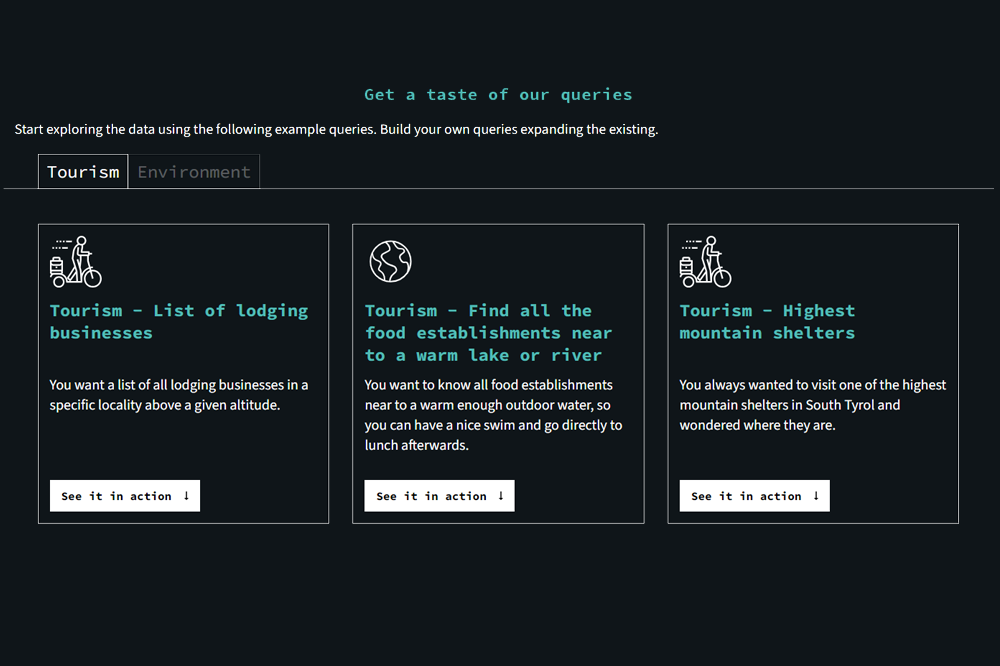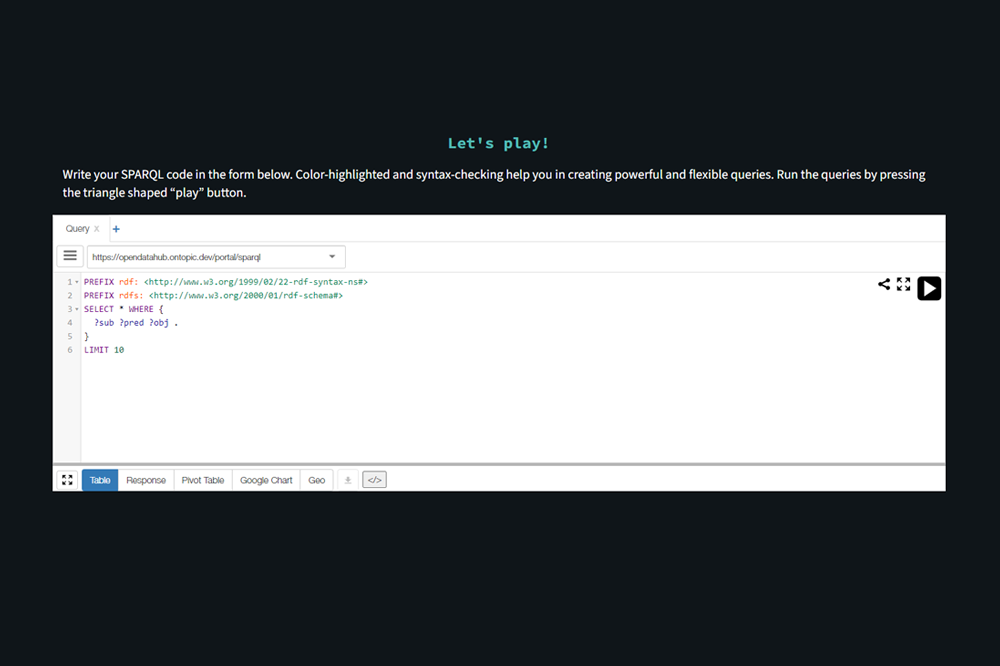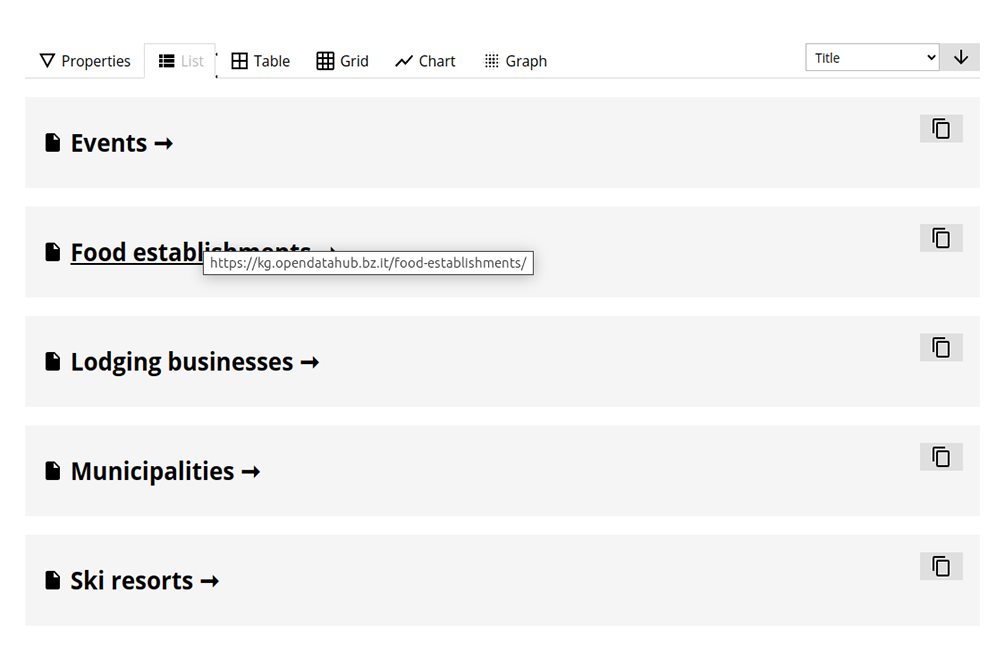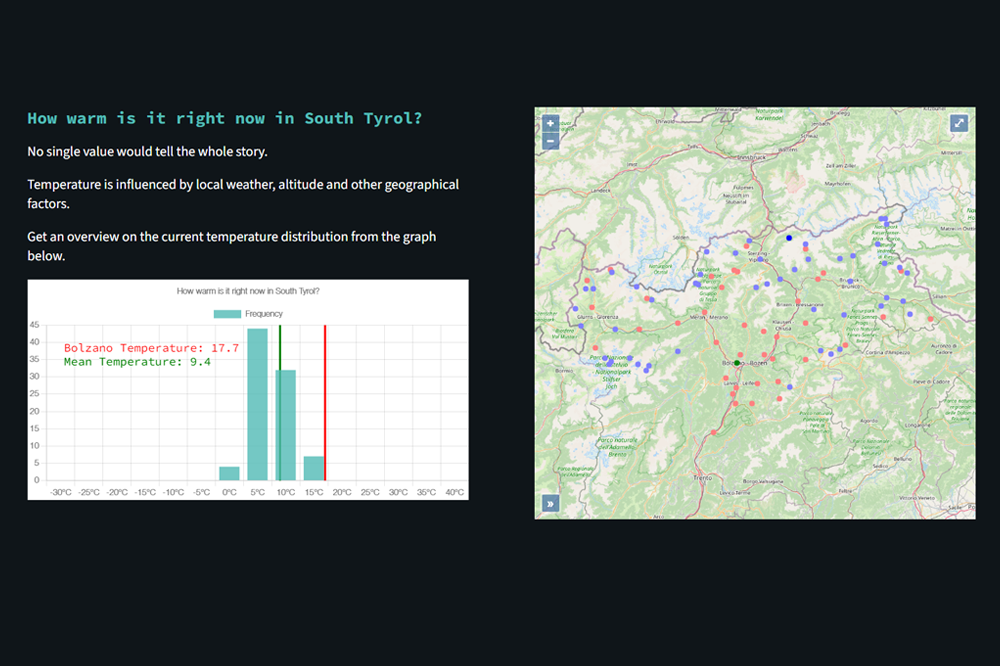 Loading...
Loading...
 Loading...
Loading...
In 2019, Open Data Hub and Ontopic began an ambitious project to develop a Virtual Knowledge Graph leveraging real-world data. The aim was to give developers and data consumers seamless access to real-time mobility and tourism open datasets via a SPARQL endpoint, thereby creating a new open data access platform.


The first version of the SPARQL endpoint was unveiled in 2020. This innovative tool made data from the primary Open Data Hub data spaces accessible, particularly within the mobility and tourism domains. It quickly became the go-to API for real-time data access, querying and extracting valuable information, offering developers and organisations a reliable open data integration solution.
DISCOVER MORERecognizing the importance of user experience, Ontopic introduced a user-friendly version of the SPARQL endpoint in 2021. This intuitive interface was designed to make it easier to consume data and create precise SPARQL queries, enabling more users to work with real-time datasets for their applications. It simplified complex semantic searches and showcased the interactive data access tools offered by Open Data Hub. Although the testing phase has now concluded, the interface could be reopened based on demand.


By the end of 2022, Ontopic had officially published the testing version of the SPARQL endpoint. Powered by real-time open data sourced from the Open Data Hub, this version confirmed both reliability and performance. With this milestone, Ontopic demonstrated its ongoing commitment to open data access, helping to build data-driven solutions for businesses and developers.
Whether you’re a developer, data scientist, or semantic web enthusiast, if you want to explore public datasets for data analysis and open data access tools, we invite you to get in touch. Even though the current testing phase has concluded, we’re ready to reopen it for meaningful projects and specific requests.
CONTACT US
Peter HopfgartnerThe Open Data Hub Virtual Knowledge Graph was a great opportunity to show how data can be integrated into a highly usable source of precise information and knowledge. The solutions developed also thanks to this project allow now the fast and inexpensive creation of semantic layers, which can be used from a large variety of applications, such as PowerBI, Tableau, Metabase, Excel, Pandas and many more, in addition to the native RDF-oriented solutions.